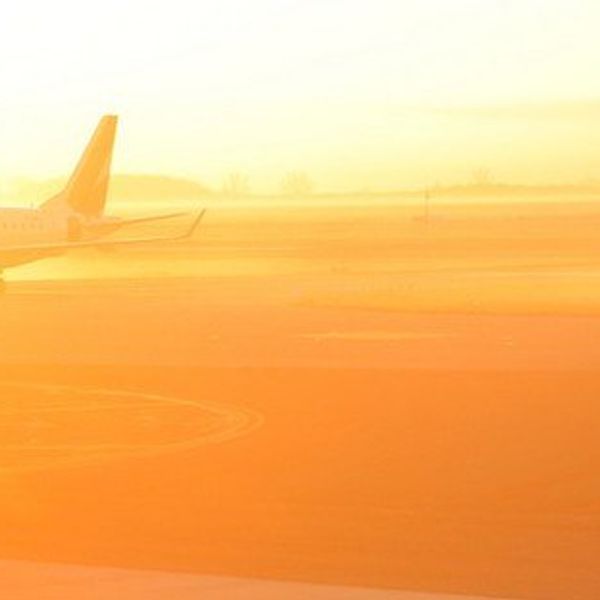With summer “rolling” into airports, more fliers and luggage bags will be taking up every available plane seat. In order to accommodate this huge influx of travelers, TSA PreCheck will be more widely available and up to 10,000 applications are being processed daily. Foreign citizens can apply for TSA PreCheck as well through the Global Entry program.
The Transportation Security Administration (also more infamously known as the TSA), manages all transportation aspects of the US after the attack on September 11, 2001. Enacted by the Bush administration, the TSA is a division of the Department of Homeland Security that screens all passengers and pertains mostly to airport security but also applies to all modes of transportation.
The TSA PreCheck is a government managed airport security program to allow frequent fliers to skip the whole “undress and unpack” process. Instead of taking off shoes, belts and jewelry and trying to desperately place electronic devices along with the standardized gallon quart bag of toiletries into a plastic bin on a conveyor belt and walking through yet another metal detector and possibly being patted down--these TSA PreCheck fliers will be able to practically skip the whole arduous process.
Before 2001, bypassing airport security was hardly a challenge. But concerns were raised and airport security was given priority. Before the attacks, airport security was much less diligent about safety in an attempt to get more fliers onboard.
Taken from the Aviation and Transportation Security Act Wikipedia, travelers today would be extremely unnerved and wary about traveling with such lenient standards preceding the TSA.
“Prior to ATSA, passenger screening was the responsibility of airlines, with the actual duties of operating the screening checkpoint contracted-out to private firms such as Wackenhut, Globe, and ITS.
Ticket counter agents were required to ask two questions of passengers checking luggage:
- Have any of the items you're traveling with been out of your immediate control since the time you packed them?
- Has anyone unknown to you asked you to carry an item aboard the aircraft?
Visitors had to pass through metal detectors and have their carry-on luggage X-rayed before entering the concourses. Photo ID was not required, as at that time the sterile concourse was still viewed as a public area.”
Compiling a list, TSA PreCheck does have its benefits and negative aspects in both ways. Many may see the TSA PreCheck to be a hassle but frequent fliers will see it as an opportunity.
Pros:
- Expedited security lines allows travelers to get through security faster.
- After removing valuable electronics to place into a insecure plastic bin, travelers are bound to lose track of their belongings as it goes through a X-ray on a conveyor belt. TSA PreCheck allows travelers to keep their valuables inside their bags at all time and away from potential theft.
- The need for body scanners and intrusive pat downs are eliminated. Travelers go through a metal detector instead but random security checks are still mandatory regardless of the passenger’s travel status.
- Despite the fact that the PreCheck line may look longer, the line moves significantly faster than the regular TSA security line. More travelers are able to be processed and cleared to fly within a shorter amount of time.
Cons:
- The cost of TSA Precheck is a nonrefundable $85. TSA PreCheck applications can be denied for many reasons as well such as previous crime charges or travel violations. Mostly frequent fliers benefit the most from this program and those who fly maybe once or twice a year for vacations will have a harder time trying to make the most of their money.
- There is not a guarantee on if the airport or airline will provide TSA Precheck because at the moment, not all airlines and airports offer it. If not enough agents or Trusted Travelers are present, TSA PreCheck lines can also be closed at certain terminals.
- Also, worst of all, the program is randomized and many PreCheck travelers may be forced into the standard security line--for security reasons. Before traveling, it is encouraged that travelers double check about their PreCheck status.
Unfortunately, the TSA has been letting a lot of their employees go. Thousands of security officers and agents lost their jobs, yet millions of passengers will be flying soon as the summer season arrives with an increase of travelers--many unseasoned or first time fliers. With less and less officers, security lines will be held up even more. Although air travel is indeed becoming more popular, the TSA has been underfunding many of their security checkpoints in an attempt to accommodate to their budget cuts.
But as a Hartsfield-Jackson Atlanta International Airport regular, I’ve been always amazed by how big it is and the complexity of the terminals. The airport processes over 100 million passengers a year, acting as a central hub airport for millions of flights, easily making it the world’s busiest airport. The security screening staff manages to check thousands of fliers daily to ensure safety. Even if airport security is a bit costly, the TSA should remember their mission statement of “protecting the nation’s transportation and ensure freedom of movement” whether it’s through the widely debated TSA PreCheck program or daily security screenings since their creation in 2001.





















